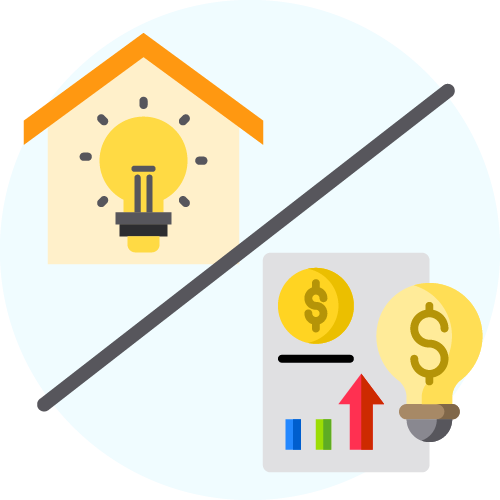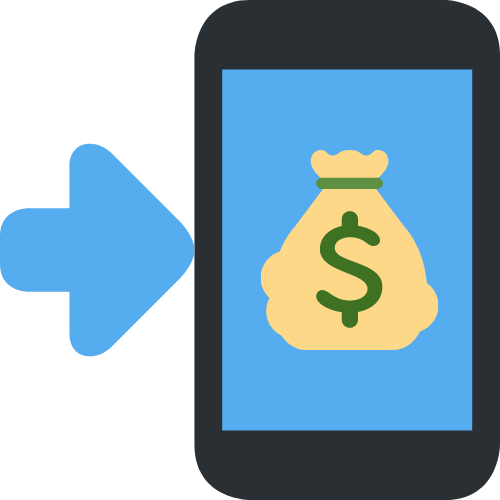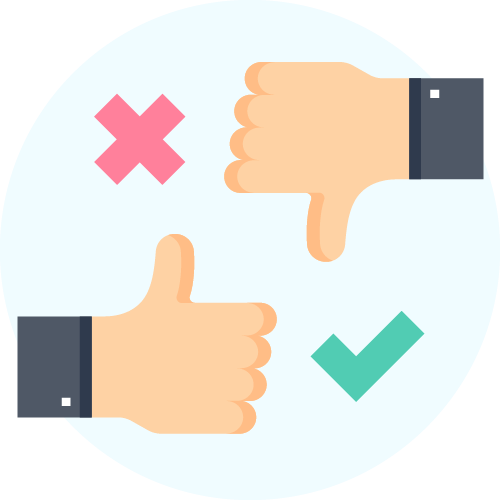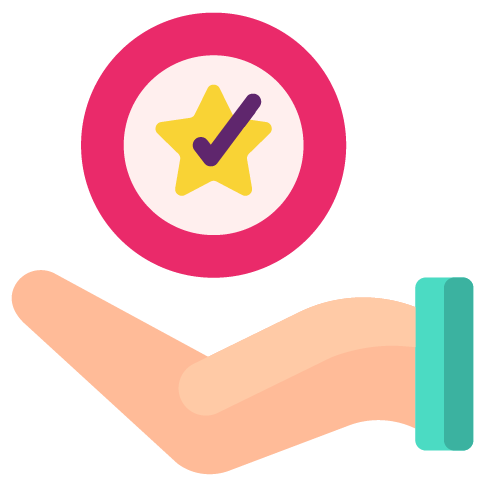- Lifestyle Business Definition
- Lifestyle Businesses Advantages and Disadvantages
- Getting Started with your Lifestyle Business
Q: What is a lifestyle business example?
A: Some of the most popular routes to lifestyle entrepreneurship include: creating online courses, blogging, podcasting, and writing e-books.
What’s more important to you: Money and perks, or flexibility and freedom?
If it’s the latter, a lifestyle business could be for you.
“A what?”
A lifestyle business is any type of income-generating activity that enables you to generate enough revenue to cover your costs and fund the lifestyle you want.
These businesses are often started as self-employed ventures and may be based on a hobby or an area of personal interest. This way, the owner not only controls their work life balance and income, but also enjoys the time they spend working.
However, what you do could be virtually anything — you could write, teach, create, fix, cook, crochet, the list goes on. The main priority is that your business activities are flexible in nature, which means paid work can fit around your lifestyle.
What motivates a lifestyle entrepreneur?
“Their goal isn’t to establish a business that they can grow and/or harvest, but one that will be low maintenance and enjoyable to own/operate.”
A Labour of Love: Active Lifestyle Entrepreneurship (2021)
The goal is to reach and sustain a certain quality of life — but not necessarily to make a lot of money along the way.
What is a lifestyle business example?
A digital nomad is one example of a lifestyle entrepreneur.
Digital nomads are solopreneurs who blend work with travel. Their business activities support their lifestyle, with the aim of bringing in enough revenue to fund their globetrotting adventures.
Why?
Because the 9-5 life isn’t for everyone.
If you’ve ever dreamed of doing your job from a distant tropical location, or working for yourself so you can reclaim a little more time, you’ll see the attraction.
So, do you think a lifestyle business could be your calling?
Then read on.
In this guide, we dig into all things lifestyle entrepreneurship so you can weigh up the pros and cons, learn how it all works, and discover some of the great things you can do to earn a living… and make a life.
Lifestyle Business Definition
Imagine if you could spend more time doing the things you love without feeling committed to a rigid work schedule.
That’s the goal of a lifestyle business.
A lifestyle business is a flexible business that works around, or with, the founder’s lifestyle. They are usually run by solopreneurs and may be born out of a hobby, with the sole intention of funding the founder’s chosen lifestyle.
What are the best lifestyle businesses to start?
What you consider the ‘best’ business idea depends on your personal circumstances and how you want to lead your life.
Some of the most popular routes to lifestyle entrepreneurship include: creating online courses, blogging, podcasting, and writing e-books.
The more tasks you can automate, and the more repeat revenue you can bring in, the better.
Because more automation means less time working.
But unlike many other businesses, the goal is not to make as much money as possible.
Once the target lifestyle has been achieved, no further growth or expansion is necessary; the long-term goal is sustaining the lifestyle rather than making more profit.
Here’s another way of looking at it:
What is the opposite of a lifestyle business?
A ‘classic’ entrepreneur generally builds their life around their business. They are typically focused on building a team to grow the business and achieve targets such as investment, profit, and shares.
On the flip side, a lifestyle entrepreneur is less interested in money and is more focused on using the business to enjoy their life.
Lifestyle Business vs. Startup
What’s the difference between a lifestyle business and a startup?
When you start a lifestyle business, you might call it a startup.
However, lifestyle businesses and startups are generally considered two different things.
- A startup founder seeks to expand the business through funding, and take on employees to grow the business and maximize profitability.
- A lifestyle business owner isn’t interested in huge profits or hiring people. The goal is to make enough money to reach the target lifestyle, and sustain it.
Some startups go on to make huge profits for their founders, while others become a very time-intensive job in which the founder works long days and weekends, and certainly doesn’t get much chance to enjoy their lifestyle.
As one lifestyle entrepreneur puts it, “building a startup is building a 9-to-5” — and that’s exactly what lifestyle business owners are trying to escape.
And in the words of Jase Rodley, an SEO consultant and self-confessed lifestyle entrepreneur:
“Funded startups are a full-time job that is all-consuming. From hiring the right people to making sure they are constantly hitting targets, if you don’t own 100% of the shares, it’s unlikely you’ll own 100% of your time.”
Today, lifestyle businesses are becoming more attractive as individuals recognize the value of work flexibility.
The coronavirus pandemic and work-from-home orders enabled many people to find out what it’s like to work from home on a daily basis.
Many people embraced it and discovered new enjoyment in work flexibility and work/life balance.
For some, this created a shift in mindset.
- Why not find a job or side business that enables me to work from home (or work from anywhere) permanently?
- Why spend so much time commuting and committing to a rigid schedule when I can work for myself?
- Retirement is a long way off… What if I could spend more time doing what I love now, while I’m still fit and healthy enough to enjoy it?
These are just some of the considerations that have led people onto the path of lifestyle entrepreneurship.
If you’re thinking along the same lines, read on to discover some of the most common lifestyle business ideas.
8 Lifestyle Business Ideas in 2023
Anybody can start a lifestyle business.
The best lifestyle businesses are those that are flexible in nature. That way, you can fit your work commitments around your hobbies or lifestyle.
There are many different types of lifestyle businesses, and one common feature is that they generally require little or no startup capital. Many of them are creative too, although this doesn’t have to be the case.
Here are a few examples of lifestyle businesses:
All of these business ideas have the potential to grow or scale. However, lifestyle businesses are not usually created with the intention of scaling.
This isn’t because they can’t grow, but rather because it would defeat the entire purpose of the lifestyle business.
A growing business demands more time and commitment from the founder. Even hiring staff means the lifestyle entrepreneur effectively becomes a manager, which is at odds with the lifestyle they want to achieve.
Lifestyle businesses are often linked to the famous ‘4-Hour Work Week’ proposed by Tim Ferriss and the general concept of passive income.
The goal is to create a business that provides enough money to cover costs and fund your lifestyle, with as little time commitment as possible.
Sounds idyllic, doesn’t it?
Now let’s take a reality check.
Before you ditch your day job and jump into your new business idea, remember this:
For every person who successfully transitioned to a lifestyle entrepreneur, there are others who didn’t.
Their business idea didn’t take off. Or they couldn’t cover their living costs. Or an unexpected event (eg. the coronavirus pandemic) disrupted their plans.
There are hundreds of potential reasons why lifestyle business ideas fail.
And yet there are thousands that work successfully.
So let’s take a look at the pros and cons of lifestyle businesses.
Lifestyle Businesses Advantages and Disadvantages
Truth is, anybody can start a lifestyle business.
But not every one of them is a success.
And even the successful entrepreneurs have endured their fair share of ups and downs.
That’s life.
It’s important to approach your venture with an open mind.
Here’s a closer look at some of the top advantages and disadvantages of lifestyle businesses.
Advantages
- Flexibility: You’re in control of your work schedule, which means you can put as much or as little time into the business as you want. Work for an hour a day, or ten hours; so long as you meet the necessary requirements to cover your costs, it’s up to you.
- Independence: As a lifestyle entrepreneur you’re no longer answering to a manager or HR department. You get to be your own boss, which means you’re in control of when, where, and how you work.
- Live your life: As the name suggests, the mission of a lifestyle business is to focus on what’s important to you. Whether it’s spending more time with family, pursuing a hobby or sport, or travelling without the constraints of a corporate holiday allowance, you have the freedom and flexibility to make time for what matters.
- Lower stress levels: When you’re in pursuit of happiness rather than profit, and you have the chance to enjoy more freedom and flexibility, you may find that you experience less stress and are able to achieve better health and wellness.
Disadvantages
- Unreliable income: Even if you don’t intend to make a fortune, you still need to cover your living costs. When you’re running a solo business, your income can be unstable — especially when you’re just starting out. Keep a ‘rainy day’ fund on one side to cover unexpected costs.
- Don’t expect a queue of investors: You may need some startup cash to buy raw materials or inventory, but lifestyle businesses rarely attract attention from investors. That’s because they don’t see growth potential or a large return on investment. Be prepared to provide your own funding.
- Hard work: Expect to put a considerable amount of time, energy and money into your venture — especially in the beginning. In the early days you will have a steep learning curve which will take up a lot of time. Learn as you go, and always aim to automate as much as possible so that your manual input gradually decreases.
- The potential for profit is lower: Remember that a lifestyle business isn’t really about making lots of money. It’s about making enough to fund your lifestyle — but be realistic. If you are not making enough income, or if you expect your living costs to increase in the near future, you may need to readdress your strategy.
Getting Started with your Lifestyle Business
So far we’ve covered the meaning of lifestyle entrepreneurship, some lifestyle business ideas and examples, and the pros and cons of becoming a lifestyle entrepreneur.
Now let’s look at how to get started.
First, evaluate the skills, experience, and talents you already have.
These are your strengths.
You can utilize some or all of them when designing a lifestyle business.
For instance, let’s say you have a keen interest in writing and research, and extensive experience in digital marketing.
Blogging or writing ebooks could become your business, but you also have a killer talent in digital marketing. You can use this to get your work noticed.
Or, use digital marketing as your business (think affiliate marketing or SEO consultancy) and exercise your writing skills to build keyword-rich content that will bring customers to your website.
Soft skills are incredibly important too.
Organization, time management, problem solving, critical thinking, good communication, self-motivation — all of these (and more) are essential to help you start and make a success of your lifestyle business.
Best Lifestyle Businesses
There is no template for the perfect lifestyle business.
That’s because a lifestyle business is unique to YOU. It fits around your idea of a perfect lifestyle.
So instead of trying to find the ‘right’ business, take a moment to think about the kind of life you want to build.
- How do you love spending your spare time?
- What are you good at?
- Could you make a business out of it?
The key is to build your business around your natural advantages and skills.
Once you have some ideas of how to build your business, make sure you can earn revenue from it.
Some people start by creating an audience first.
For instance, coworking spaces thrive on having an active, engaged community of members. When planning a coworking space, most operators start by building their member community first; the physical space comes later, once they’re satisfied with the level of demand in the area.
Another example is social media.
You can start a social media profile — such as a YouTube channel — anytime you like, and begin building subscribers many months (or years) before embarking on your business venture.
Then, when you’ve piqued plenty of interest, you can begin using your channel to earn revenue by selling products.
On the flip side, it might make more sense to create the product first.
This allows you to go through multiple design, prototype, and testing cycles to ensure you get it right. If the product is good, the audience will generate itself.
Either way, it pays to research your idea and test it first — ideally while you’re still working at a regular job and earning income.
Don’t simply dive into a new business and hope for the best. This is a shortcut to anxiety, financial stress, and most likely failure.
Figure out if there’s a demand for your business. Speak to your audience and discover their pain points; this will help you create something that they actually need and are willing to pay for.
Any business takes time and dedication to get started. In the meantime, make sure you are financially covered while your venture gets off the ground.
No business plan is flawless, and every business involves some risk.
Even the most carefully-researched and planned business idea is susceptible to the unexpected.
Just look at the events of 2020. Nobody could have predicted the speed, scale and devastation that Covid-19 unleashed upon the world.
Even if you’re not investing tons of money into this venture, you could end up wasting your time on a failed business.
Be prepared for this, both emotionally and financially.
Be practical.
Remember, this is your ticket to more time, freedom, and flexibility.
Get it right now, and you will soon be able to spend more time doing the things you want, rather than spending your precious time working for someone else.
Final Steps
Once you’ve identified your niche, think about ways to get noticed.
A website is usually the first place to start.
You can create it yourself using a self-build platform with templates. Or hire a freelancer to create one for you (but make sure it’s easy for you to access and update going forward).
If you’re new to marketing, learn the basics by reading a selection of recently published online guides and ebooks. You can also take online courses.
For the more advanced or time-consuming areas of marketing, consider hiring some online help. The more you can automate certain tasks, the less time you’ll need to dedicate to your work.
But, be prepared to put a lot of time and effort into getting your business off the ground. In the beginning, you might actually end up working more hours than your typical 9 to 5.
This might sound contradictory to the ethos of a lifestyle business.
But every business needs a certain amount of hard work and grit.
Think of the rocket launch analogy.
A considerable amount of power and energy goes into launching a rocket. But eventually, it reaches sufficient momentum to sustain its voyage resistance-free.
Stay focused.
Keep the end goal in sight.
It will be worth it.
How do I build a lifestyle business?
Let’s recap.
How do I build a lifestyle business?
It’s incredibly easy to move through life without really thinking about what you want.
We’re not talking about fancy cars, or luxury vacations, or a bigger house.
We’re talking about spending more time doing things that make you feel happy, like being with your family or enjoying a sport or hobby.
That’s priceless.
The fascinating thing is that a lifestyle business won’t necessarily give you that fancy car (in fact it probably won’t) but it will give you something far more valuable:
Your time.
And surprisingly, it’s within reach.
So, if you’re interested in making a life rather than just a living, and if you value freedom and flexibility over money and perks, then a lifestyle business could be for you.




























